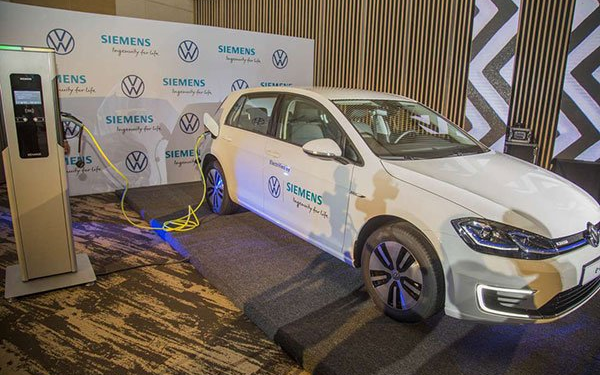Uganda and Rwanda, amidst infrastructure challenges, are emerging as frontrunners in the global transition towards electric mobility. While neighboring countries like Kenya and Tanzania are taking tentative steps, Kampala and Kigali have made significant strides by inaugurating electric vehicle assembly plants. This bold move reflects a promising future for eco-friendly transportation in East Africa.
Ambitious Initiatives Drive Electric Vehicle Adoption
At the forefront of Uganda’s electric vehicle revolution stands the state-owned Kiira Motors Corporation. Kiira Motors has demonstrated unparalleled ambition by constructing two battery-powered cars and a solar electric bus. The flagship product, the Kayoola Electric Vehicle Series (EVS), showcases Uganda’s commitment to green mobility technologies. Collaborating with Chinese Equipment Manufacturer, Motor Co. Ltd., Kiira Motors has developed buses capable of covering 300km on a single charge, with a seating capacity of 49 passengers and standing room for 41 more.
The Kayoola Electric Vehicle Series: Redefining Public Transportation in Uganda
The introduction of the Kayoola Electric Vehicle Series heralds a new era for public transportation in Uganda. These buses offer increased passenger capacity compared to their diesel counterparts while emitting zero emissions. With a focus on sustainability, Uganda’s commitment to eco-friendly transportation is evident. Furthermore, the Kayoola series represents a significant step towards reducing the country’s carbon footprint and combating climate change.
Rwanda’s Electric Revolution: A Model for Sustainable Transportation in East Africa
In tandem with Uganda’s efforts, Rwanda has embarked on its own electric mobility journey. The country’s commitment to sustainable transportation is underscored by its ambitious initiatives. By embracing electric vehicles, Rwanda aims to reduce reliance on fossil fuels and promote environmental conservation. The government’s proactive approach has positioned Rwanda as a model for sustainable development in the region.
Overcoming Infrastructure Challenges in East Africa’s Electric Vehicle Journey
Despite the progress made by Uganda and Rwanda, infrastructure challenges remain a critical hurdle in East Africa’s electric vehicle revolution. Limited charging stations and inadequate road networks pose significant obstacles to widespread adoption. Addressing these challenges requires collaborative efforts between governments, private sector stakeholders, and international partners. Investment in infrastructure development is crucial to unlocking the full potential of electric mobility in the region.
Conclusion:
Uganda and Rwanda’s pioneering efforts in electric vehicle adoption highlight the region’s commitment to sustainable transportation. Through initiatives like the Kayoola Electric Vehicle Series and strategic partnerships, these countries are driving innovation and setting a precedent for the rest of East Africa. While infrastructure challenges persist, the momentum towards electric mobility is undeniable. With continued investment and collaboration, East Africa is poised to lead the charge towards a cleaner, greener future.




